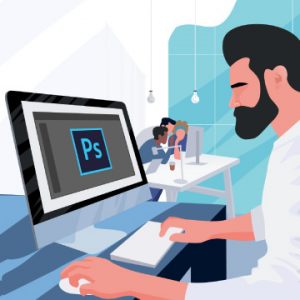Views
126
Replies
7
Status
Closed
scanning and working with 1200 resolution or higher, system takes 5to10 min. to come on screen from file. also very difficult to work with photo. I am interested in up dating if this is my problem. i have 1.6, pent4, win xp, 40gig hd 83% full, 32mb agp 3d graphics, 512 sd ram. can some one make any recommendations. i just bought scanner, and adobe elements, its all new thanks joe s.

How to Improve Photoshop Performance
Learn how to optimize Photoshop for maximum speed, troubleshoot common issues, and keep your projects organized so that you can work faster than ever before!
